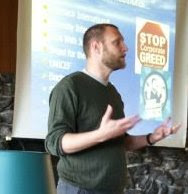The Kingdom Call: Unity of Opposites
Psalm 148
I am usually uncomfortable with so much praising - seeing it as an outgrowth of imperial or kingly court influence or overlay on the religious devotion of the people, an attempt to transfer awe and allegiance of God to the king or emperor. So I found this particular psalm difficult to approach.
That being said, I can certainly appreciate the idea that the whole universe ought to appreciate the source of creative growth, stand in awe at the wondrous complexity and endurance, the fragility and perserverance of life and crystals and the atomic numbers on the periodic table of elements.
(I did find it entertaining when the psalmist spoke of the "waters above the heavens" [4] and "sea monsters" [7]. It reminds me that, yes, this an historical document reflecting a particular time and understanding, much of which I cannot share. And it reminds me to be generous in my reading.)
But something started to come together in verses 9 through 12. Fruit trees and cedars, wild animals and cattle, creeping things and flying birds, kings and people, women and men, young and old. These are all pairings of populations that compete with one another. Each of these is clearly distinct from the other and often vies for power and prosperity, sometimes for survival. Yet in this psalm they are united, singing with one voice, in praise of something greater than they. Herein lies the crux: God unifies disagreeing parties, and those who would praise God must join their voices with their enemies' if they would send a pleasing sound. This is the kingdom of God, Zion: unity in the face of division, diversity in the face of competition and forces that would wipe out diversity, holding all things sacred - especially our enemies and victims and those who oppose us (and whom we oppose). The wolf shall lie down with the lamb, and a little child shall lead them. (Isaiah 11:6)
Worship of God necessarily includes reconciling with our enemies, with our resources, with our sources of sustenance... with all creation, starting with what we most violently oppose or exploit.
And that is truly worth the whole world's praise.
I am usually uncomfortable with so much praising - seeing it as an outgrowth of imperial or kingly court influence or overlay on the religious devotion of the people, an attempt to transfer awe and allegiance of God to the king or emperor. So I found this particular psalm difficult to approach.
That being said, I can certainly appreciate the idea that the whole universe ought to appreciate the source of creative growth, stand in awe at the wondrous complexity and endurance, the fragility and perserverance of life and crystals and the atomic numbers on the periodic table of elements.
(I did find it entertaining when the psalmist spoke of the "waters above the heavens" [4] and "sea monsters" [7]. It reminds me that, yes, this an historical document reflecting a particular time and understanding, much of which I cannot share. And it reminds me to be generous in my reading.)
But something started to come together in verses 9 through 12. Fruit trees and cedars, wild animals and cattle, creeping things and flying birds, kings and people, women and men, young and old. These are all pairings of populations that compete with one another. Each of these is clearly distinct from the other and often vies for power and prosperity, sometimes for survival. Yet in this psalm they are united, singing with one voice, in praise of something greater than they. Herein lies the crux: God unifies disagreeing parties, and those who would praise God must join their voices with their enemies' if they would send a pleasing sound. This is the kingdom of God, Zion: unity in the face of division, diversity in the face of competition and forces that would wipe out diversity, holding all things sacred - especially our enemies and victims and those who oppose us (and whom we oppose). The wolf shall lie down with the lamb, and a little child shall lead them. (Isaiah 11:6)
Worship of God necessarily includes reconciling with our enemies, with our resources, with our sources of sustenance... with all creation, starting with what we most violently oppose or exploit.
And that is truly worth the whole world's praise.



0 Comments:
Post a Comment
<< Home